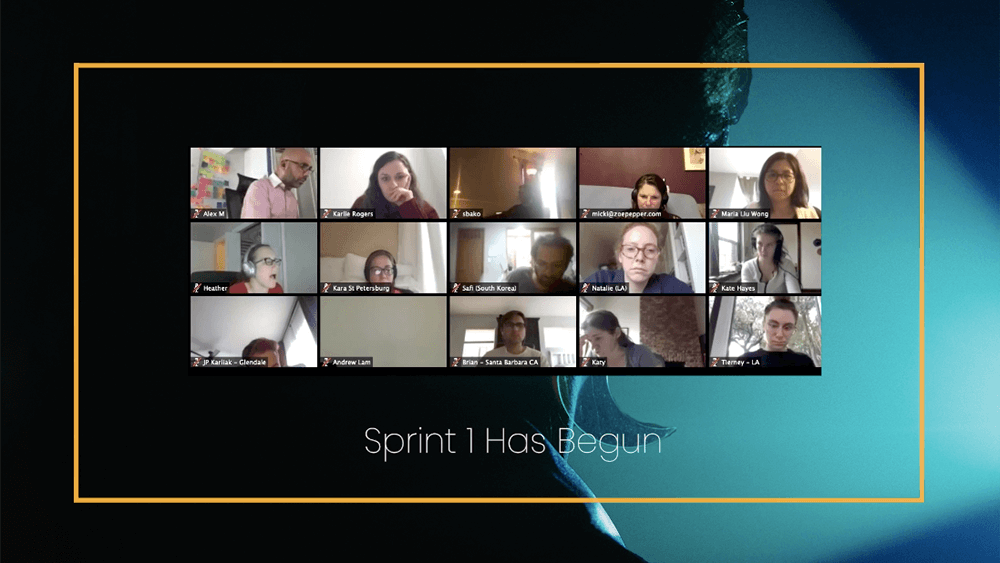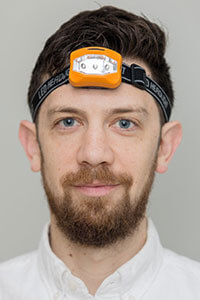
During Caveday work sprints, cave dwellers put their phones away, shut off all notifications, and keep their cameras on for accountability.
It will come as news to no one that our attention is being shredded. According to a survey released in 2019, U.S. consumers unlocked their phones an average of 96 times a day — a number that now, during pandemic times, has ballooned to an average of 150 times a day. Meanwhile, according to a Microsoft study, the average amount of time that office workers focus on one task before switching to another is 40 seconds. When Convene surveyed readers last year, 83 percent of respondents said focusing on work-related tasks had become more challenging than ever.
And that’s a big problem. Our ability to focus is shrinking, just when our best thinking is most in demand: When the World Economic Forum (WEC) recently published its list of the top 10 emerging job skills for 2025, analytical thinking, the ability to learn and to innovate, complex problem-solving, ideation, and originality all made the list. And although multitasking — including switching all day long between digital platforms — has become the norm, it is when we monotask that we get our best work done, according to computer science professor Cal Newport, who popularized the term “deep work” in his 2016 book by the same name. “To produce work at your peak level,” Newport wrote, “you need to work for an extended period with full concentration on a single task free from distraction.”
The ability to do deep work, “is like a superpower in our increasingly competitive 21st-century economy,” said Jake Kahana, a cofounder of Caveday, a company which hosts virtual coworking sessions on Zoom. The company’s name comes from fellow cofounder Jeremy Redleaf, a New York City–based filmmaker and screenwriter who sometimes found himself overwhelmed with creative projects. Redleaf discovered that when he sequestered himself away from his phone and email and imagined he was spending a day in a cave, he got a lot more work done.
Redleaf began hosting small productivity sessions — called “cave days”— for his friends and in 2016, teamed up with Kahana, a creative director, and experience designer Molly Sonsteng to create a company. Caveday initially operated as a series of in-person events, bringing participants together in rented meeting rooms around Manhattan, where they dropped their phones into a box with a lid and worked in a series of facilitator-led work sprints laced with breaks. The company began offering remote sessions two years ago and greatly increased the number of online sessions offered during the pandemic. Caveday, which participants access per session or by the month, draws regular attendees from 25 countries. During a recent week, more than 1,200 people participated in 38 online sessions.
Caveday has synthesized Newport’s insights with other behavioral science research on attention, connection, learning, motivation, and the concept of flow (the mental state of being fully immersed in an activity) to create a structure to support focus. Zoom sessions are organized into sprints that range from 42 to 50 minutes long, guided by a host who watches the clock so that participants don’t have to. “Having a facilitator lets the focus move entirely on the work,” Kahana said. “The facilitator keeps track of time, reminds us to put away phones and tells us how (and when) to take breaks. The community can relax and put their attention in their work.”

Jake Kahana
Participants are encouraged to not only turn off their phones, but to put them out of sight — researchers found that even if a smartphone was turned off, its presence alone was enough for its owner to experience measurable cognitive decline. Participants also are asked to add the projects they are working on to their names on Zoom and leave their video cameras on — gentle but effective ways to help build intention and focus.
“I believe that people are more successful in a community for the simple idea of accountability,” Kahana said. “There’s a light competitive spirit in all of us that wants to keep up with others. So, when everyone is focused and working hard, it makes us want to do the same. It’s the reason why we get a better workout by being in an exercise class than by working out alone.”
It’s also fun: Caveday sessions offer short optional breakouts, where participants talk about their work through a variety of lenses — fermentation and the benefits of gratitude are two topics that recently were discussed. They function a little bit like watercooler chats but with predefined exit plans.
Another Caveday precept: Working with focus is a trainable skill and with practice, people can get better at it. Much has been written about productivity, Kahana said, “but nobody has ever really taught us how to work.” People have managed to be productive on their own, he said, and successful focus has a lot to do with habit-formation — “and most people are able to pick up habits faster when given structure and accountability.”
And that, in my mind, is what is motivating hundreds of people to pay to log on to work in the mostly silent presence of others. As the digital bids for our attention keep growing exponentially, a community like Caveday — which provides regular practice in the habits that can help us marshal our attention — can be a bulwark against the rising tide.
Here are four tips, adapted from Caveday’s website, for planning a focused work session:
- Prioritize important work over urgent demands. We can spend our days answering email and responding to requests. But we feel better when we make progress on important work — and it’s an investment in the future of our work lives, too. In WEC’s list of the top 10 emerging job skills for 2025, analytical thinking, the ability to learn and innovate, complex problem-solving, and creativity all made the list.
- Do the hard things first. Research shows we have the most energy and focus early in the day. “We often fall into the trap of building momentum with easy tasks,” according to the website, “but suddenly, it’s 3 p.m., and you don’t have the mental capacity to do your hard work.”
- Monotask. Multitasking promotes limited attention spans — it’s the only thing that the more of it we do, the worse we get at it. Splitting our attention across different tasks is not only counterproductive but also reduces our cognitive abilities.
- Go into ‘Do Not Disturb’ mode. Eliminate distractions: Close tabs, quit programs, mute notifications, hide your phone.
More tips for focus can be found at caveday.org.
